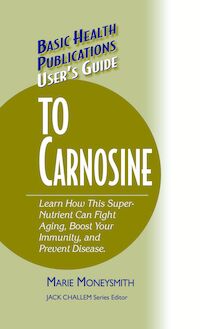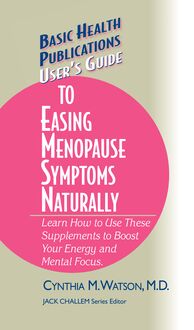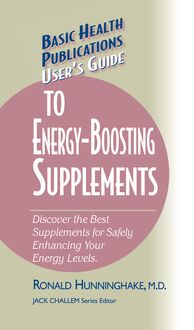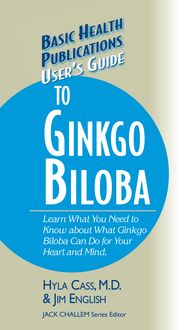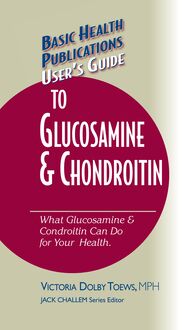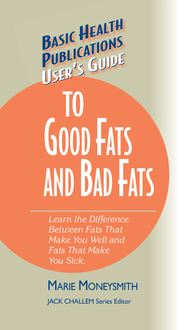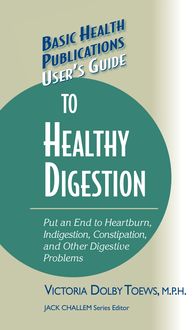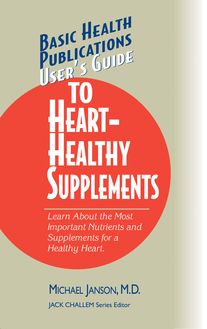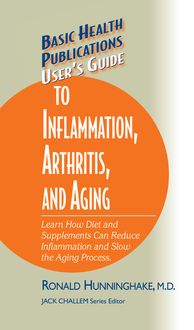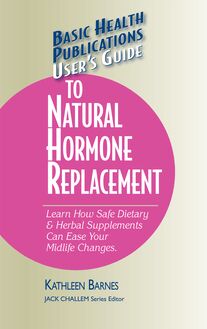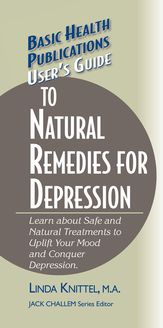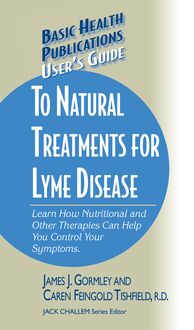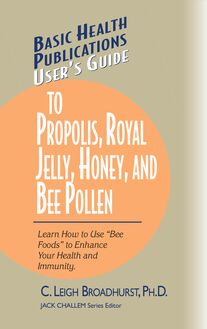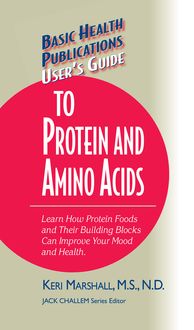-
 Univers
Univers
-
 Ebooks
Ebooks
-
 Livres audio
Livres audio
-
 Presse
Presse
-
 Podcasts
Podcasts
-
 BD
BD
-
 Documents
Documents
-
- Cours
- Révisions
- Ressources pédagogiques
- Sciences de l’éducation
- Manuels scolaires
- Langues
- Travaux de classe
- Annales de BEP
- Etudes supérieures
- Maternelle et primaire
- Fiches de lecture
- Orientation scolaire
- Méthodologie
- Corrigés de devoir
- Annales d’examens et concours
- Annales du bac
- Annales du brevet
- Rapports de stage
La lecture à portée de main
Vous pourrez modifier la taille du texte de cet ouvrage
Découvre YouScribe en t'inscrivant gratuitement
Je m'inscrisUser's Guide to Chronic Fatigue & Fibromyalgia , livre ebook
Découvre YouScribe en t'inscrivant gratuitement
Je m'inscrisEn savoir plus
Vous pourrez modifier la taille du texte de cet ouvrage
En savoir plus

Description
Sujets
Informations
| Publié par | Turner Publishing Company |
| Date de parution | 01 janvier 2005 |
| Nombre de lectures | 0 |
| EAN13 | 9781591206828 |
| Langue | English |
| Poids de l'ouvrage | 1 Mo |
Informations légales : prix de location à la page 0,0298€. Cette information est donnée uniquement à titre indicatif conformément à la législation en vigueur.
Extrait
The information contained in this book is based upon the research and personal and professional experiences of the author. It is not intended as a substitute for consulting with your physician or other healthcare provider. Any attempt to diagnose and treat an illness should be done under the direction of a healthcare professional.
The publisher does not advocate the use of any particular healthcare protocol but believes the information in this book should be available to the public. The publisher and author are not responsible for any adverse effects or consequences resulting from the use of the suggestions, preparations, or procedures discussed in this book. Should the reader have any questions concerning the appropriateness of any procedures or preparations mentioned, the author and the publisher strongly suggest consulting a professional healthcare advisor.
Series Editor: Jack Challem
Editor: Chris Mariadason
Typesetter: Gary A. Rosenberg
Series Cover Designer: Mike Stromberg
Basic Health Publications User’s Guides are published by Basic Health Publications, Inc.
8200 Boulevard East
North Bergen, NJ 07047
1-800-575-8890
Copyright © 2004 by Laurel Vukovic, M.S.W.
ISBN: 1-59120-147-0 ISBN: 978-1-59120-682-8
All rights reserved. No part of this publication may be reproduced, stored in a retrieval system, or transmitted, in any form or by any means, electronic, mechanical, photocopying, recording, or otherwise, without the prior written consent of the copyright owner.
Printed in the United States of America
10 9 8 7 6 5 4 3 2 1
C ONTENTS
Introduction
1. Understanding Fatigue
2. Chronic Fatigue Syndrome
3. Fibromyalgia
4. Hidden Causes of Fatigue
5. How to Reduce Stress and Gain Energy
6. Nutrition for Energy and Healing
7. Essential Supplements for Overcoming Fatigue
8. Restore Your Energy with Herbal Tonics
9. Herbs for Symptom Relief
10. Lifestyle Suggestions for Increased Energy
Conclusion
Selected References
Other Books and Resources
INTRODUCTION
T HE E PIDEMIC OF F ATIGUE
I t’s not an exaggeration to label fatigue as a modern-day epidemic. In fact, fatigue is one of the most common health complaints, and one of the primary reasons for visits to the doctor.
Fatigue can wear many guises, ranging from everyday, run-of-the mill tiredness to incapacitating fatigue that makes it difficult to get out of bed. But no matter how tired you are, or how severe your symptoms may be, you’ll find help in this book. You’ll learn about fatigue and its causes, as well as the more severe illnesses of chronic fatigue syndrome and fibromyalgia. Chapter 6 outlines the best diet for restoring and maintaining vitality, including specific foods and nutrients that are essential for energy production. In Chapter 7 , you’ll learn about special nutritional supplements that can dramatically improve your energy and well-being. In Chapters 8 and 9 , you’ll learn the secrets of tonic herbs that can help to restore your vitality, as well as herbs that help to relieve the symptoms of chronic fatigue and fibromyalgia. In this book, you’ll also discover many valuable tips for creating a life of balance that will support you in your quest for improved health and energy.
You’ve taken an important first step by buying this book. Remember the words of the ancient Chinese philosopher, Lao-tzu, who wisely said, “The journey of a thousand miles begins with a single step.” Although you may feel as though you have a long way to go, it’s important to be patient with yourself as you embark on your healing journey. You might find it helpful to keep a journal, where you can record your diet, exercise, sleep patterns, and how you are feeling. Keeping track can provide you with valuable information as to what is working, and what isn’t. Most of all, remember that your body has a remarkable capacity for healing and rejuvenation.
CHAPTER 1
U NDERSTANDING F ATIGUE
A t the most basic level, fatigue is a powerful feedback tool. If you’re feeling tired, your body is telling you that you need to slow down and evaluate how you are living. This includes the obvious factors of diet, exercise, and sleep, as well as the not so obvious factors such as how you manage life stressors.
Are You Fatigued?
Everyone feels tired at times. It’s normal to feel tired after a hard day’s work, whether it’s mental or physical labor. And it’s also normal to feel tired after vigorous exercise. If a good night’s sleep or a day of rest and relaxation restores your energy, then you’re in good shape and your body is functioning as it should.
Fatigue can be defined as a much deeper, longer-lasting tiredness. If you’re fatigued, you feel tired—even exhausted—most of the time. You may feel depressed or irritable, and have difficulties concentrating and accomplishing tasks. It’s likely that you lack the energy to do much more than just get through the day, and your enthusiasm has probably waned for activities that you formerly enjoyed.
While fatigue is a symptom of a wide variety of medical conditions, in most cases it’s related to lifestyle factors that are within your control. It’s important, however, to schedule an evaluation with your healthcare practitioner to rule out underlying physical causes such as anemia, low thyroid function, and diabetes.
The Primary Causes of Fatigue
Because there are many underlying causes of fatigue, it’s helpful to identify which, if any, are contributing to your exhaustion.
Some of the primary reasons for fatigue include dietary factors (nutritional deficiencies, food allergies, and dietary stressors such as caffeine), sleep disorders, lack of exercise (or too much exercise), overworking, emotional stress, low thyroid function, hypoglycemia, and adrenal weakness. All of these factors are explored in depth in this book.
One thing is certain: the world today moves at a faster pace than ever, and most of us feel compelled to try to keep up. Although the natural rhythm of life calls for times of activity balanced with times of rest, few people schedule sufficient time for rest. For example, although most people function best on about eight hours of sleep per night, it’s the rare person who meets their sleep needs on a regular basis. Sleeping in on weekends to try to remedy a sleep deficit only makes the problem worse, because doing so further disrupts the body’s metabolic clock. Whether you’re staying up late working or partying or simply seduced by late-night television, missing out on sleep is one of the most common, and overlooked, causes of fatigue.
In addition, few people take the time to eat relaxed, nutritious meals. Instead, the norm is to grab a quick meal from the nearest fast food drive-thru, or to collapse in front of the television with a microwave dinner. If you’re subsisting on a diet of processed foods, your body isn’t getting the nutrients it needs to create fuel for your cells. Taking the time for a relaxed meal provides a respite during the day to slow down and nourish not only your body, but your spirit.
How to Get Started
Once you’ve seen your doctor and ruled out any underlying conditions that might be causing fatigue, you can get started with the suggestions in this book. Begin with the dietary recommendations in Chapter 6 , which will furnish your body with the nutrients it needs to create energy. Make sure to avoid the primary energy zappers: caffeine, sugar, refined carbohydrates, and excessive alcohol. You can rebuild your energy more quickly by providing your body with concentrated nutritional supplements and energy-enhancing tonic herbs. While they can’t make up for an unhealthy diet, supplements and tonic herbs play an essential role in building vitality. While you’re attending to your diet, also begin following the suggestions in Chapter 10 to ensure that you’re getting a good night’s sleep. As your energy begins to improve, start a gentle exercise program, which will further increase your vitality. Be careful not to overextend yourself, though, to avoid creating fatigue. And finally, to help stress-proof your life and enhance your overall well-being, follow the suggestions for stress management and relaxation in Chapters 5 and 10 .
CHAPTER 2
C HRONIC F ATIGUE S YNDROME
T he tiredness associated with chronic fatigue syndrome, also known as chronic fatigue immune dysfunction syndrome (CFIDS), is different from the ordinary, garden-variety fatigue that everyone experiences after a long day at work or a session of unaccustomed physical activity. The earliest and most significant indication of this debilitating condition is overwhelming fatigue and a lack of stamina that makes it difficult to engage in normal life activities. The fatigue often appears suddenly, and may be continual or intermittent. In addition, even a good night’s sleep doesn’t relieve the tiredness.
The Symptoms of Chronic Fatigue
A wide range of symptoms characterizes this debilitating illness; while some people experience only a handful of symptoms, others are plagued by many. The most prominent symptom, of course, is severe exhaustion, which is not alleviated by sleep or rest. Other telltale symptoms are muscle and joint achiness, persistent sore throat, frequent headaches, and tender lymph nodes. The most common symptoms of CFIDS have been described as being similar to having a bad case of the flu. But instead of the illness running its course in a week or two, the symptoms persist for six months or more. In addition, emotional and mental symptoms, such as depression and difficulties with concentration, often accompany CFIDS.
CFIDS
Chronic fatigue immune dysfunction syndrome; a debilitating, chronic illness characterized by severe exhaustion.
One of the reasons that CFIDS is such a puzzling disorder is that the symptoms and their severity often vary so markedly from one person to the next. Symptoms may occur only intermittently, which can be confusing for both t
-
 Univers
Univers
-
 Ebooks
Ebooks
-
 Livres audio
Livres audio
-
 Presse
Presse
-
 Podcasts
Podcasts
-
 BD
BD
-
 Documents
Documents
-
Jeunesse
-
Littérature
-
Ressources professionnelles
-
Santé et bien-être
-
Savoirs
-
Education
-
Loisirs et hobbies
-
Art, musique et cinéma
-
Actualité et débat de société
-
Jeunesse
-
Littérature
-
Ressources professionnelles
-
Santé et bien-être
-
Savoirs
-
Education
-
Loisirs et hobbies
-
Art, musique et cinéma
-
Actualité et débat de société
-
Actualités
-
Lifestyle
-
Presse jeunesse
-
Presse professionnelle
-
Pratique
-
Presse sportive
-
Presse internationale
-
Culture & Médias
-
Action et Aventures
-
Science-fiction et Fantasy
-
Société
-
Jeunesse
-
Littérature
-
Ressources professionnelles
-
Santé et bien-être
-
Savoirs
-
Education
-
Loisirs et hobbies
-
Art, musique et cinéma
-
Actualité et débat de société
- Cours
- Révisions
- Ressources pédagogiques
- Sciences de l’éducation
- Manuels scolaires
- Langues
- Travaux de classe
- Annales de BEP
- Etudes supérieures
- Maternelle et primaire
- Fiches de lecture
- Orientation scolaire
- Méthodologie
- Corrigés de devoir
- Annales d’examens et concours
- Annales du bac
- Annales du brevet
- Rapports de stage

